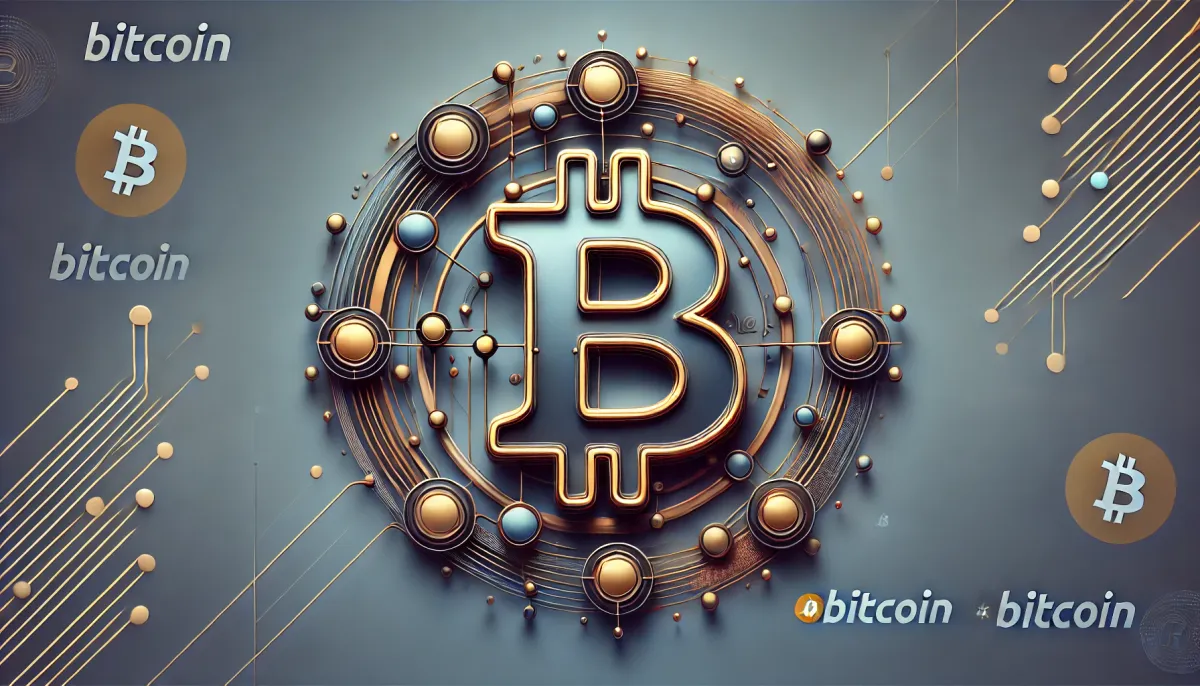Praxeology and Bitcoin: Redefining Human Action in the Digital Economy
The June 28, 2023 episode of the What is Money podcast features Knut Svanholm. The conversation focuses on praxeology as a framework within Austrian economics that emphasizes the subjective nature of human actions and decision-making, and Bitcoin's implications.

Briefing Notes/Caveat
My 'briefing notes' generally summarize only the content of podcast episodes; they do not usually reflect my own views. Note that some of the podcast episodes I summarize may be sponsored: don't trust, verify, if the information you are looking for is to be used for decision-making.
For this episode, I feel I need to add a personal caveat too. I am not an Austrian economist and while I agree with the importance of the subjective nature of human perceptions and actions, I am an 'institutional' economist with a strong American pragmatist philosophical leaning. My view is that applying deductive reasoning is insufficient for understanding economics, and that empirical verification of shifting aspirations and opportunities is crucial. See my summary of a short journal article I wrote, Bitcoin is Full of Surprises, for more detail.
One of the important (Nobel-winning) insights from institutional economics is that decentralization is not a goal in itself, but a reflection of the the relationship between the decentralization and devolution of governance, and the minimization of transaction costs (see Oliver Williamson's work). In practice, that means national governments and international organizations have a role to play in some types of challenges. The 'proper scope of governance' is thus an empirical issue, which seeks to understand how governance challenges can be matched with the appropriate level of decentralization to minimize transaction costs (negotiations, monitoring, legal, etc.).
Bitcoin, a new decentralized form of money, shifts the balance towards more decentralized forms of goverment but will not do away with it all together. As a new technology, it fundamentally changes the nature of many transactions, increasing the reliability of 'trustless' transactions, fostering voluntary trade, and reducing the power of legacy financial institutions. Institutions (the 'rules of the game') have changed, and governments and firms will need to react as declining transaction costs force their hands.
Now to the content, as presented by Knut Svanholm and Robert Breedlove.
Summary
The June 28, 2023 episode of the What is Money podcast dives into the connection between praxeology, the study of human action, and Bitcoin. Robert Breedlove and Knut Svanholm explore how praxeology, as a deductive framework within Austrian economics, helps explain the subjective nature of human actions and decision-making. They argue that Bitcoin promotes rational, ethical interactions by enforcing property rights and decentralizing financial power. This alignment with praxeology suggests Bitcoin could revolutionize global economic structures, making them more transparent and less coercive.
Take-Home Messages
- Bitcoin fosters ethical, voluntary exchanges through decentralized systems, promoting rational and peaceful interactions in line with praxeological principles.
- Bitcoin’s fixed monetary supply incentivizes long-term thinking and capital accumulation, making it a key hedge against inflationary fiat systems.
- Current empirical economic models fail to capture the subjective nature of human action, and praxeology offers a more accurate lens through which to understand Bitcoin's role in global finance.
- The decentralization of financial power through Bitcoin could lead to more equitable markets by reducing reliance on coercive, centralized institutions.
- Bitcoin's role in the future economy will likely expand, with its emphasis on property rights and rational action challenging traditional economic structures.
Overview
This podcast episode, featuring Robert Breedlove and Knut Svanholm, explores the relationship between praxeology and Bitcoin. Praxeology, as defined by Austrian economics, emphasizes human action as subjective and purposeful. Svanholm argues that praxeology provides a more accurate framework for understanding economic behavior than empirical models, which often fail to capture the complexity of human decisions. At the core of praxeology is the axiom that "man must act," meaning humans constantly engage in purposeful action to meet their needs and desires. This concept directly applies to Bitcoin, which enforces property rights and incentivizes voluntary, peaceful exchanges.
Bitcoin’s decentralized nature and fixed supply align with praxeological principles by reducing the reliance on coercion and inflationary pressures typical of fiat systems. Svanholm explains how Bitcoin encourages long-term thinking and sustainable economic practices by providing a stable, finite asset. This shift in time preference—valuing future goods over present consumption—has the potential to transform individual behaviors, particularly in terms of savings and investment. Moreover, Bitcoin’s decentralized structure challenges traditional financial systems by removing the power of central banks and large institutions to manipulate currency values or impose economic control.
The discussion also critiques the overreliance on empirical economic models, which are useful in natural sciences but less effective in capturing subjective human behavior. Svanholm suggests that economic policies based on these models are often flawed and fail to address the real drivers of human action. By contrast, praxeology, with its emphasis on deductive reasoning, offers a clearer understanding of how humans make decisions. Bitcoin’s transparent and decentralized framework, grounded in praxeological thought, provides a viable alternative to current monetary systems that rely on centralization and inflation.
Stakeholder Perspectives
- Bitcoin Community: Advocate for Bitcoin as a tool for financial freedom, aligning with praxeological principles of voluntary, peaceful exchange.
- Austrian Economists: View Bitcoin as a practical application of praxeology, enforcing property rights and fostering rational human action.
- Policy Makers: Concerned about Bitcoin’s potential to disrupt centralized financial systems, necessitating new regulatory approaches.
- Investors: See Bitcoin as a hedge against inflation and a potential long-term store of value, especially as fiat currencies face increasing volatility.
- Technology Innovators: Interested in Bitcoin’s potential to drive decentralized innovation and reform financial markets.
Implications
The broader implications of this podcast suggest that Bitcoin could significantly influence the future of global economics. Its alignment with praxeology promotes ethical, voluntary exchanges and reduces the coercive control of centralized financial systems. This shift could lead to more equitable global markets, as individuals and institutions adopt Bitcoin as a stable, decentralized currency. For policymakers, the episode highlights the limitations of empirical economic models in addressing the complexities of human behavior and the need to incorporate praxeological principles when considering future regulatory frameworks.
As Bitcoin continues to grow in adoption, its decentralized structure could challenge the dominance of fiat systems that rely on inflation and manipulation of currency values. Investors are likely to view Bitcoin as a reliable store of value, particularly as inflation erodes the purchasing power of traditional currencies. The ethical framework enforced by Bitcoin, rooted in property rights and voluntary exchange, suggests that Bitcoin could serve as a foundation for more transparent and just economic systems. However, challenges such as volatility and regulatory resistance remain, requiring further exploration.
Future Outlook
From the perspective of the podcast, Bitcoin is poised to play a transformative role in the future of global finance. By decentralizing financial power, Bitcoin reduces the ability of governments and large institutions to control economic activity through inflation and coercion. As Bitcoin adoption increases, it may drive significant changes in both individual behavior and global economic structures. Bitcoin’s fixed supply encourages long-term thinking and savings, promoting more sustainable economic practices. For the future, integrating praxeological principles into economic policies could help address some of the key issues facing today’s centralized financial systems.
Nevertheless, the road ahead is not without challenges. Bitcoin's volatility remains a significant barrier to wider adoption, particularly among institutional investors. Additionally, regulatory hurdles could slow its growth, especially as governments grapple with the potential disruption that decentralized currencies pose to traditional financial systems. Despite these challenges, the potential of Bitcoin to promote ethical, decentralized exchanges suggests that it will remain a critical player in shaping the future of the global economy.
Information Gaps
- How can Bitcoin’s fixed supply encourage long-term thinking and capital accumulation? Bitcoin’s fixed supply incentivizes individuals to save and plan for the future, as its value is expected to rise over time. This encourages long-term thinking and could shift societal behaviors towards sustainable economic practices.
- What are the risks and rewards of decentralizing financial power through Bitcoin adoption? Decentralizing financial power reduces the ability of governments or corporations to control economic activity through coercion. However, it also presents risks, such as market volatility and the potential for technical vulnerabilities.
- What long-term effects will inflationary fiat systems have on economic stability and global markets? Inflation distorts price signals, making it difficult for individuals and institutions to make rational economic decisions. The long-term impact of inflationary fiat systems could include destabilized markets and increased demand for decentralized alternatives like Bitcoin.
- How does Bitcoin enforce ethical human interactions, and what are the broader social implications? Bitcoin’s emphasis on property rights and voluntary exchange promotes ethical interactions. This could lead to more just and transparent economic systems, reducing the need for coercive control by centralized institutions.
- What are the consequences of continued reliance on empirical economic models in understanding Bitcoin’s impact on global economies? Empirical models often fail to capture the subjective nature of human action, leading to flawed economic policies. Incorporating praxeological principles may provide a more accurate framework for understanding Bitcoin’s role in the global economy.
Broader Implications for Bitcoin
Bitcoin’s Role in Global Economic Decentralization
The podcast emphasizes Bitcoin’s potential to decentralize power by removing reliance on central banks and large institutions. As Bitcoin adoption increases, financial control could shift from centralized authorities to individuals and smaller communities, fostering greater economic autonomy. This decentralization aligns with praxeological principles by promoting voluntary and peaceful exchanges, but it also raises questions about how governments and traditional financial institutions will adapt to these changes.
Ethical and Transparent Financial Systems
Bitcoin’s emphasis on enforcing property rights and ethical interactions provides a foundation for a more transparent global economy. The podcast highlights how Bitcoin can incentivize voluntary exchanges and reduce coercive behavior, challenging the unethical practices often associated with fiat currencies and centralized systems. If widely adopted, Bitcoin could promote economic justice by limiting the ability of governments and corporations to inflate currencies or manipulate markets, leading to a more equitable distribution of wealth.
Long-Term Economic Stability and Time Preference
The discussion on time preference suggests that Bitcoin’s fixed supply may encourage long-term thinking and sustainable economic practices. With inflation eroding the value of fiat currencies, Bitcoin’s deflationary nature incentivizes saving and capital accumulation. This shift in time preference could lead to greater financial stability and reduced economic volatility over time, as individuals and institutions prioritize future value over immediate consumption. Governments and policymakers may need to consider how Bitcoin could reshape savings behavior and its impact on long-term economic growth.



Comments ()